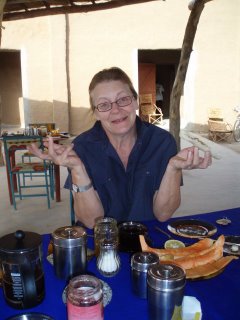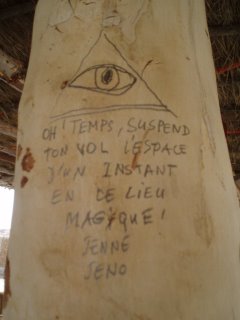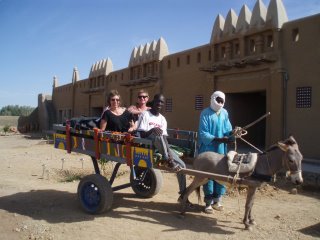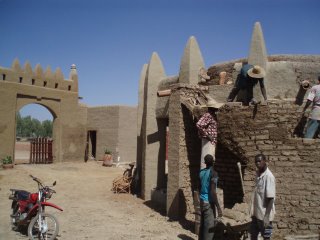 How to ruin one's reputation with the entire Dutch diplomatic corps in West Africa in one fell swoop:
How to ruin one's reputation with the entire Dutch diplomatic corps in West Africa in one fell swoop:
1. Take a reservation with the Dutch ambassador to Mali for himself and his friends in three airconditioned rooms+dinner months in advance. Then write it down on the wrong day.
2. Make sure the hotel is more or less full, so that when they turn up, you only have the ropiest rooms left to offer them, the ones with fans only.
3. When they arrive at about 7.30 pm. be certain that all the other guests are at table, ready to eat, so the staff is 100% occupied elsewhere.
4. As soon as they arrive, and the awful truth has dawned on you, do arrange a powercut, so the hotel is plunged into deepest darkness for at least an hour.
5. Make sure that your barman (the one person who might have been able to cheer them up) is the only person around who understands the generator, therefore will be occupied in the engine room, leaving you in the darkness trying to find the one corkscew available.
6. For full effect, do try to have more than one ambassador arriving at the same time. In that way they will be able to spread the rumour to all the other diplomatic staff in a much more efficient way. In this case I managed the Dutch Ambassador to Mali
and the Ambassador to Ghana! These were the ambassadors present, to my knowledge. But no doubt the others held the same post in Benin, Togo and Cote d'Ivoire. I didn't dare ask.
Anyway, they actually smiled this morning (see above.)
But in order to boost my deeply dented self confidence as a hotelière I will publish below some nice things people have said about Djenné Djenno...

 Gunnar is a Norwegian cycling enthusiast who seems to have criss-crossed every continent several times on his bike. He met Pia and Andrew in St.Louis Senegal, and they told him about Hotel Djenné Djenno so he got on his bike and here he is a few weeks later.
Gunnar is a Norwegian cycling enthusiast who seems to have criss-crossed every continent several times on his bike. He met Pia and Andrew in St.Louis Senegal, and they told him about Hotel Djenné Djenno so he got on his bike and here he is a few weeks later.

























